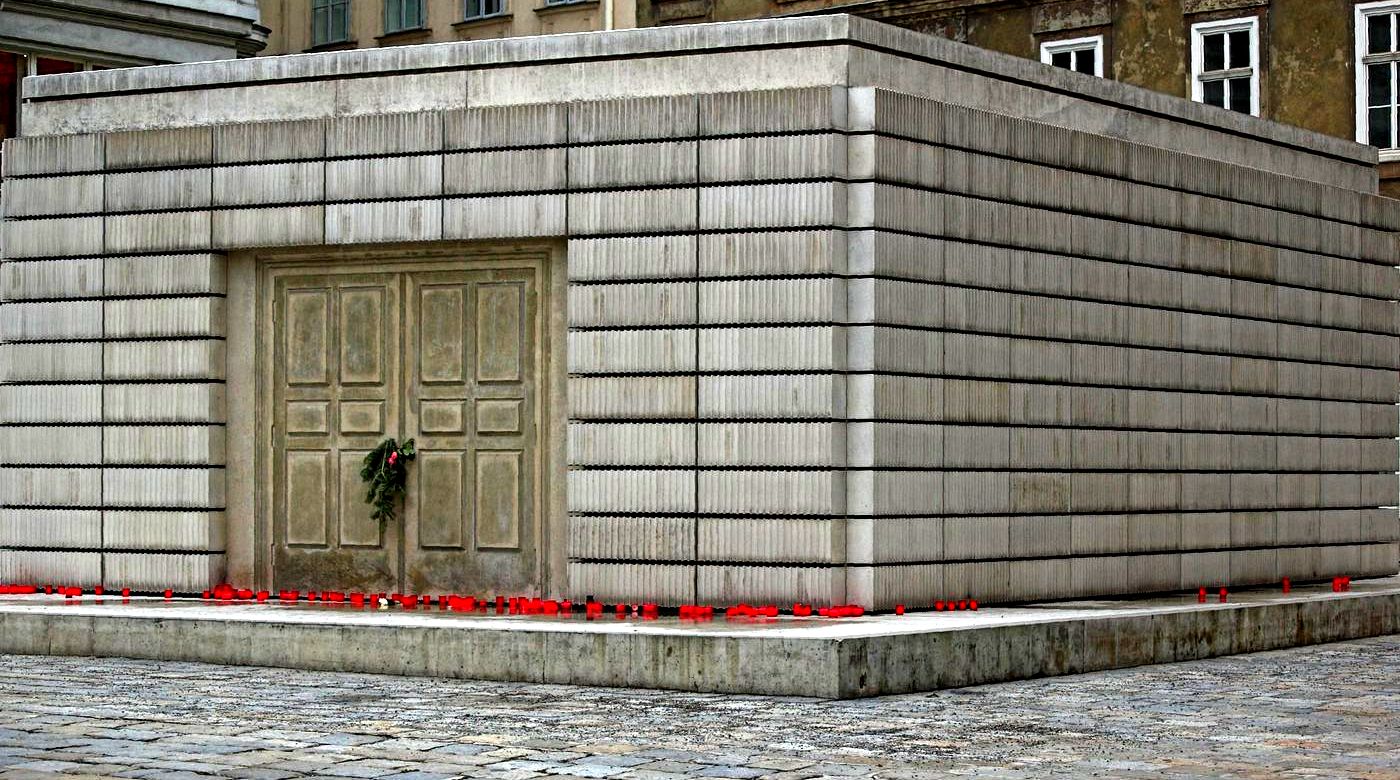Holocaust

To my surprise, I am increasingly and profoundly uncomfortable with the inauguration of Holocaust Memorial Day (in 2000) and what seems a proliferation of Holocaust memorials – particularly the one planned for London. Why? I’ve been struggling to work it out myself. I’m the child of a refugee from Hitler. My family were, mostly, lucky; but those who survived still lost pretty much everything except their lives. You would have thought that I would be the first to say that the Holocaust must never be forgotten. And it must never be forgotten. So why am I not glad?
First of all, why now? Why wait 55 years before proclaiming a holocaust memorial day? Why build a memorial now after 75 years?
Secondly, why build one at all in London? The holocaust memorial in Vienna (pictured) is a masterpiece, and in exactly the right place, the site of the medieval synagogue – until Jews were expelled from Vienna in the 15th century. By British artist, Rachel Whiteread, it’s a locked library of inaccessible lives. And, like the memorial in Berlin, it is a recognition of shared guilt and the desire for reconciliation.
I fear that the British memory of the Holocaust is of British troops liberating Auschwitz, which isn’t the same thing at all.
It feels like band-waggonery. A corporate statement: “we are dedicated to remembering the Holocaust.” It’s meaningless. And including later UN-approved genocides in the circle of remembrance to my mind weakens the whole enterprise, rather than strengthens it.
It feels like another example of putting these horrific events in a box marked “history”, and pushing them to one side.
And worse. It’s remembering the wrong thing. I think this is what’s really bothering me. The lesson of Hitler’s Germany is not that the Germans were all uniquely horrible and we should feel sorry for their victims. The lesson is that we are no different. If a powerful, popular leader were to arrive in Britain, or the USA, or any other country of the world, and were to encourage hatred of a group or groups of people, then most of the population would go along with it. Those who didn’t actively agree, would keep silent because that makes for an easier life. We are not different from, or better than our parents, grandparents, great-grandparents. The death camps were the end, not the beginning.
Vigilance, not smugness is what saves lives.
